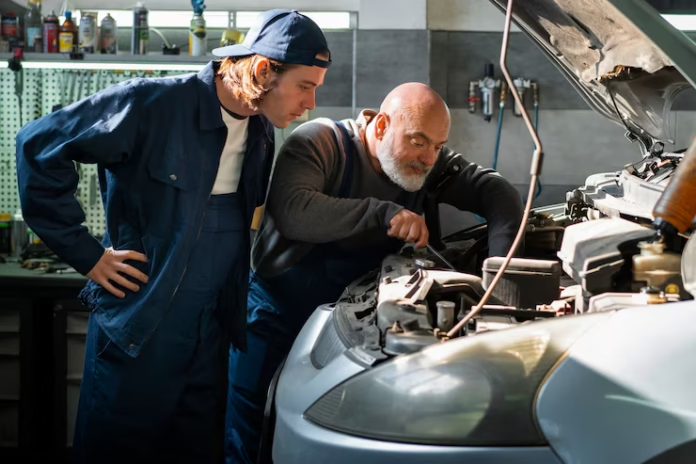The Mercedes-Benz W123 is one of the most respected classic cars in automotive history. Produced between 1976 and 1985, this car is known for its reliability, comfort, and engineering excellence. Whether you’re an experienced collector or a new owner, understanding how to care for this vehicle is essential. This guide walks you through how to take care of your W123, what parts wear out the most, and how to keep it running smoothly.
The W123 Legacy: A Car Built to Last
The W123 wasn’t built to be flashy. Instead, it was built to work well, last long, and offer a quiet, confident driving experience. People still love these cars today because:
- They’re incredibly durable, often lasting over 500,000 km with care.
- They’re easy to repair compared to many modern vehicles.
- They’re simple, which makes them ideal for DIY mechanics and hobbyists.
- They have a timeless look that never really goes out of style.
Common Wear-and-Tear Areas on the W123
Like any car, time takes its toll on the W123. But thanks to its strong design, most issues are predictable and fixable. Here’s where to focus your attention:
1. Suspension and Ride Comfort
Over time, the ride might feel rough or uneven. This often points to worn suspension parts such as:
- Shock absorbers
- Ball joints
- Control arm bushings
Replacing these components will bring back the car’s famous smooth ride.
2. Engine Seals and Gaskets
Leaks under the engine? You’re probably looking at worn-out gaskets. Common ones that need replacing include:
- Valve cover gasket
- Oil pan gasket
- Rear main seal
These parts don’t cost much, but replacing them takes time and care.
3. Electrical Issues
The W123’s wiring ages just like anything else. Common symptoms of electrical wear include:
- Dashboard lights flickering
- Power windows slowing down
- Lights dimming unexpectedly
In many cases, cleaning or replacing old fuses, grounds, and connectors will solve the problem.
Essential Maintenance Tips for a Long Life
Even the most reliable cars need regular attention. Following these simple routines will extend the life of your W123 and prevent costly repairs later.
1. Change Fluids on Time
Use quality engine oil, coolant, brake fluid, and transmission fluid. Old fluid becomes dirty and loses its effectiveness.
- Oil: every 5,000 to 7,000 km
- Coolant: every 2 years
- Brake fluid: every 2 years
- Transmission fluid: every 40,000 km (automatic or manual)
2. Inspect the Cooling System
An overheated engine can cause serious damage. Check the:
- Radiator and hoses for cracks
- Water pump for leaks
- Fan belts for wear
Replace old parts before they fail. A new thermostat or radiator cap can go a long way.
3. Keep the Fuel System Clean
Use good-quality diesel or gasoline. Replace the fuel filters regularly. A clean fuel system means:
- Better engine performance
- Smoother starts
- Lower emissions
Sourcing the Right Parts
Getting the right replacement parts is crucial. Whether you’re doing a full rebuild or replacing a worn-out alternator, the quality of your parts will affect the result.
When searching for parts, keep in mind:
- Stick with OEM (original equipment) if possible: These are made to factory standards.
- Aftermarket parts can be good too—but read reviews or ask experts first.
- Used parts from donor cars or salvage yards can be budget-friendly and just as effective.
Most online stores now categorize parts by vehicle, so you can enter your car’s model year and find exactly what you need.
What Makes a Reliable MB W123 Parts Supplier?
If you’re restoring or maintaining your car, buying from the right seller matters. A good supplier should offer:
- Clear product descriptions
- Return policies in case of mismatch
- Detailed fitment info by chassis number or model
- Parts manuals or diagrams
Don’t always go for the cheapest price. Quality parts save money in the long run by lasting longer and fitting better.
Can You Upgrade Your W123?
Yes. Many owners enjoy updating their cars while keeping the classic style intact. Here are a few popular upgrades:
- Modern radios that look vintage but support Bluetooth
- LED lighting inside and outside
- Upgraded suspension kits for better handling
- Extra sound insulation to reduce road noise
Just make sure any upgrades are reversible if you want to preserve the car’s value.
Things to Watch Out for When Restoring
If you’ve just bought a W123 or are starting a full rebuild, pay attention to these common trouble spots:
- Rust under the floors or around the wheel wells
- Faulty vacuum systems, especially for door locks and HVAC controls
- Tired interior upholstery, especially on the driver’s seat
- Cracked dashboards due to sun exposure over the years
These are all fixable—but they’ll require time, tools, and sometimes professional help.
Final Thoughts
The Mercedes-Benz W123 is a joy to own, drive, and restore. It rewards careful attention and regular upkeep with decades of reliability. Whether you’re sourcing replacement components or upgrading a few features, understanding how your vehicle works—and where to get quality parts—is the key to success.

